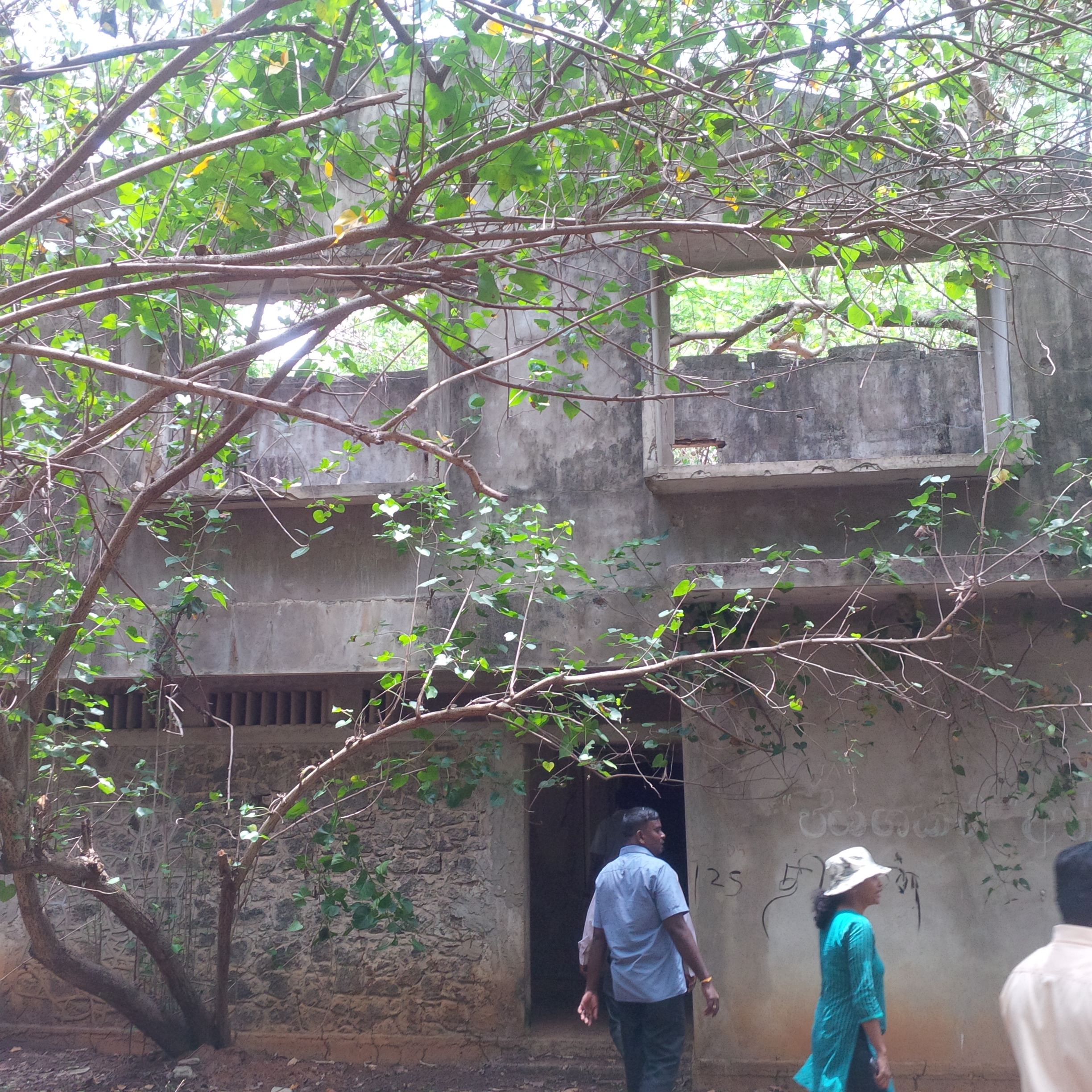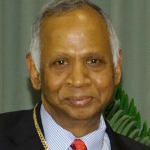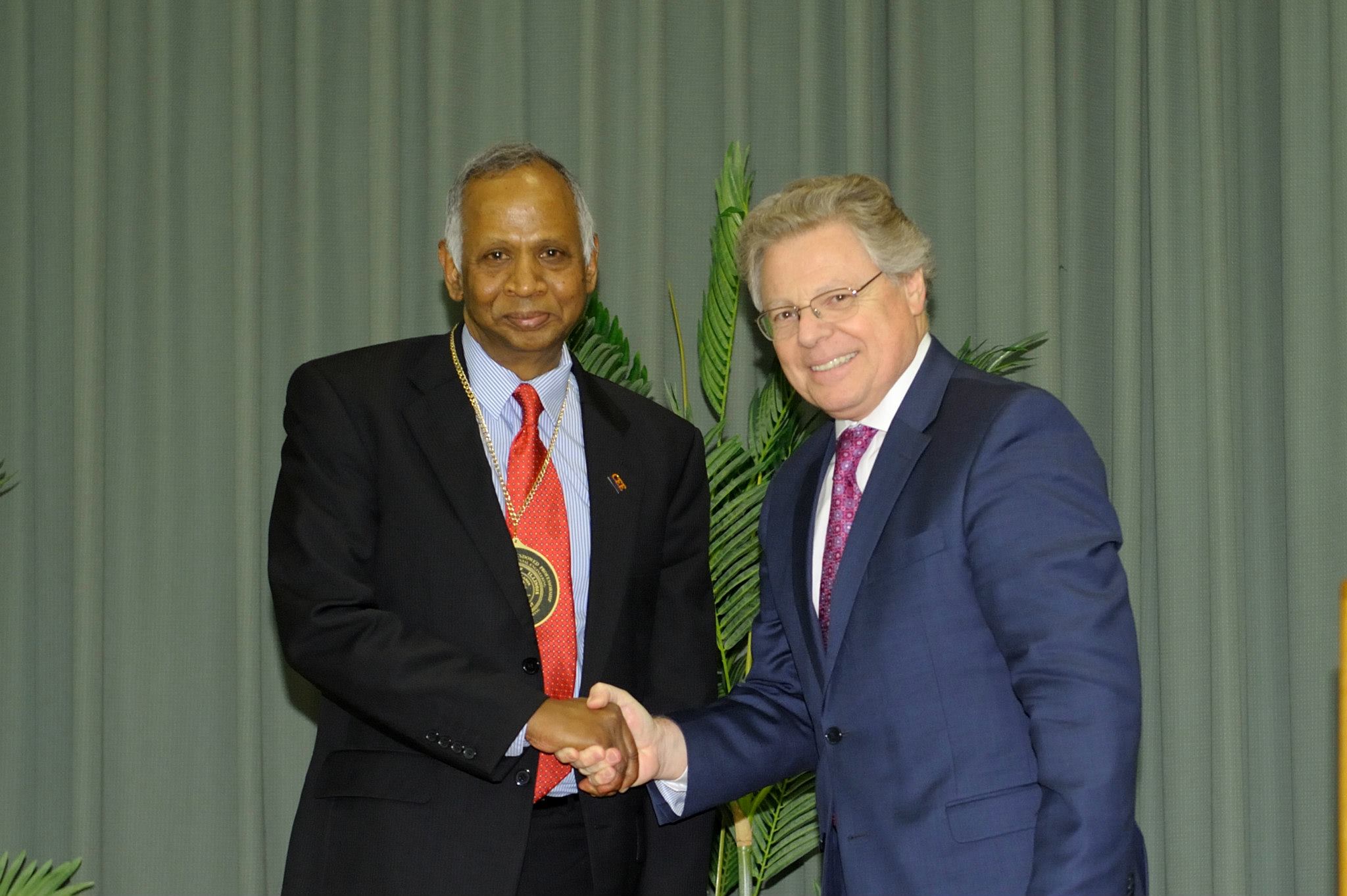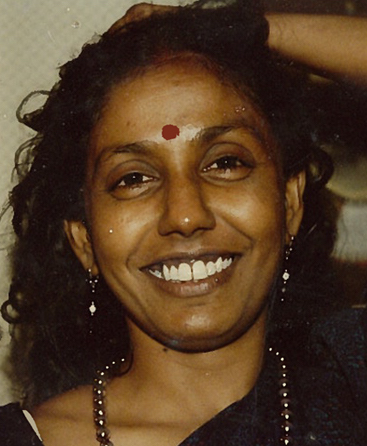A Brief Colonial History Of Ceylon(SriLanka)
Sri Lanka: One Island Two Nations
A Brief Colonial History Of Ceylon(SriLanka)
Sri Lanka: One Island Two Nations
(Full Story)
Search This Blog
Back to 500BC.
==========================
Thiranjala Weerasinghe sj.- One Island Two Nations
?????????????????????????????????????????????????Thursday, April 30, 2015
Provide Funds for Families in Newly Released Areas and Released Occupied Land

Press release: TNA MP M.A Sumanthiran on foot to visit families in newly released areas.
TNA MP M.A Sumanthiran visited families in the recently cleared areas in
Velikamam North which is in the periphery of the high security zone.
Families who fled this area 20 years ago return to find that they are in
the middle of a jungle with no access and irregular water supply.
Families are seen returning to places which were their homes to find
roofs gone and walls unstable. As living is not a possibility in the
present situation they are seen returning to their homes and cooking
just to take procession of what is their own.
Although local government officials are striving to do everything within
their means their efforts are like a drop in the ocean due to the lack
of funds.
In addition to the same villages in the areas which have been released areas have houses occupied by the military,
He appeals to the government to urgently release funds so that families could return to their homes and live normal lives,
He further went on to reiterate the need for the government to expedite
the release of a large area of land which is still awaiting release.
Tamil National Alliance
Photos of the area by TNA:
40 members of the SL army involved in war crimes ?
Thursday, 30 April 2015
It is reported that there would be a Human Rights report published in
the coming Human Rights session in Geneva in September 2015. This was
indicated in a twitter message sent by the former Norwegian diplomat and
peace agent Erik Solheim.
According to Solheim the new UNHR commissioner Zaid Al Hussain has
spoken with Erik Solheim regarding this. It is believed that the report
pending to be released is about the members of the Sri Lanka armed force
and it is leant there are more than 40 members of the SL army are
involved in war crimes. Further this topic has been spoken during
yesterday’s cabinet meeting and what relevant actions should be taken.
This would have been one of the causes to dissolve the parliament and go for a fresh election.
Thursday, 30 April 2015
It is reported that there would be a Human Rights report published in
the coming Human Rights session in Geneva in September 2015. This was
indicated in a twitter message sent by the former Norwegian diplomat and
peace agent Erik Solheim.
According to Solheim the new UNHR commissioner Zaid Al Hussain has
spoken with Erik Solheim regarding this. It is believed that the report
pending to be released is about the members of the Sri Lanka armed force
and it is leant there are more than 40 members of the SL army are
involved in war crimes. Further this topic has been spoken during
yesterday’s cabinet meeting and what relevant actions should be taken.
This would have been one of the causes to dissolve the parliament and go for a fresh election.
Jaffna graduates protest over unemployment
Unemployed graduates from all over the northern province held a protest in Jaffna on Wednesday, demanding that the Sri Lankan government provide them with jobs. The graduates, who protested in front of the Jaffna government secretariat, blocked off the entrance to the building, voicing their concerns.
Following police intervention, a meeting was set up between the protesters and the government agent, N Vethanayakan. Pledging to take up the issue with the government, Mr Vethanayakan said he was unable to provide them with government jobs personally.
|
CONCERN OVER POLICE HARASSMENT OF TAMIL JOURNALISTS

PUBLISHED ON WEDNESDAY 29 APRIL 2015.
Four Tamil journalists based in the northern cities of Mannar and
Vavuniya were summoned for questioning by the police in Colombo
yesterday, just days after another journalist received a similar summons
that resulted in his being charged with publishing false information.
Reporters Without Borders (RSF) and Journalists for Democracy in Sri Lanka (JDS) are concerned that the Sri Lankan authorities are resuming practices designed to intimidate Tamil journalists.
No reason was given for the summonses that the Colombo Crime Division issued yesterday toAnthony Thevarajan Mark of the Rupavahini Corporation, Jude Pelistis of ITN, freelancer Lambert Rosairo and Ponnaia Manikkavasagam, who works for the BBC and the Tamil daily Veerakesari.
But harassment of the Tamil media has been growing in recent days. Journalist James Joseph Fernando was summoned by the police on 26 April and questioned about articles published in 2009 inVeerakesari that criticized actions carried out by the government as part of its policy of resettling the north.
The then resettlement minister is the current government’s trade and industry minister.
Police in the northern city of Jaffna arrested N. Logathayalan, a freelance journalist working for the newspaper Uthayan,
on 8 April because of an article implicating Jaffna-based officers in a
case of police violence. He is to appear before a judge on 29 May. Two
other journalists have reported being the victims of police aggression.
“This increase in acts of intimidation against Tamil journalists is disturbing,” said Benjamin Ismaïl, the head of the Reporters Without Borders Asia-Pacific desk.
“President Maithiripala Sirisena’s first 100 days in office have
just ended without any attempt to keep promises to improve respect for
media freedom. We urge this government not to repeat the authoritarian
errors of the previous government led by the Rajapaksa family, and to
refrain from harassing independent news media and Tamil journalists in
particular.”
Sri Lanka is ranked 165th out of 180 countries in the 2015 Reporters Without Borders press freedom index.
After the 8 January election, RSF and JDS asked the newly-elected President Sirisena to end the policy of violence against journalists that had been pursued by his predecessor, President Mahinda Rajapaksa, and to combat impunity for this kind violence.
Sri Lankan journalists who was stranded in Nepal arrives


Thursday, 30 April 2015
The external affairs ministry reported the three journalists who went to
Nepal seeking political asylum due to the intimidation of the Rajapaksa
regime has returned to the island.
Lanka News Web last week reported that these journalists who able
to protect their life from the recent earthquake in Nepal is
requesting assistance to come back. The foreign minister too told in
Parliament that these journalists should be brought back to the island
soon. Although there were plans to bring back the journalists from
the aircrafts which dispatched medical relief it did not
materialize. However Jayampathi Bulathsinhala, Kumuduni Wihewardana and
Shantha Wijesuriya who were seeking political protection arrived to the
island yesterday night.


Thursday, 30 April 2015
The external affairs ministry reported the three journalists who went to
Nepal seeking political asylum due to the intimidation of the Rajapaksa
regime has returned to the island.
Lanka News Web last week reported that these journalists who able
to protect their life from the recent earthquake in Nepal is
requesting assistance to come back. The foreign minister too told in
Parliament that these journalists should be brought back to the island
soon. Although there were plans to bring back the journalists from
the aircrafts which dispatched medical relief it did not
materialize. However Jayampathi Bulathsinhala, Kumuduni Wihewardana and
Shantha Wijesuriya who were seeking political protection arrived to the
island yesterday night.
A right to know is a right for all
Fragments.
Uditha Devapriy-Thursday, April 30, 2015
 The
19th Amendment was passed yesterday. It remains this government's first
real reform "victory", ironic given that it was approved after the
100-day program ended. During these past few months we've seen promises
made and unkept. That's natural, given the state our politicians usually
are in whenever they try to win the people's mandate. For the moment
though, one important aspect of their program has been covered. The
government is to be applauded for this.
The
19th Amendment was passed yesterday. It remains this government's first
real reform "victory", ironic given that it was approved after the
100-day program ended. During these past few months we've seen promises
made and unkept. That's natural, given the state our politicians usually
are in whenever they try to win the people's mandate. For the moment
though, one important aspect of their program has been covered. The
government is to be applauded for this.
But the 19th Amendment is not the be-all and end-all of President
Maithripala Sirisena's mandate. In fact if one looks back at the main
thrust of his election campaign the abolition of the Executive
Presidency remains a top priority. This Amendment is only a starting
point. Things do not end here.
It's only natural therefore that the next big reform is looked at
reflectively. We're talking about the Right to Information Act. The RTI
Bill is yet to be tabled in parliament, and going by the assurances
given by the Media Ministry we can be sure that it will be tabled
eventually. The problem is with time. It was originally meant to be
enacted on February 20. Didn't happen. The Secretary to the Media
Ministry Karunaratne Paranavithana promised that it would get enacted
within the much talked about 100 days. That didn't happen either. We
have been assured that it will get enacted and will become a fundamental
right. In the meantime, we'll have to wait.
The RTI Bill is important and for reasons that are all too obvious. In a
(political) culture which withholds information it's vital that access
to it be made a statutory right. On this basis the Bill's provisions
need to be looked at. Karu Jayasuriya came up with a Private Member's
Bill in 2010. This we know. It was shelved when the then Chief
Government Whip Dinesh Gunawardena promised that his government would
present its own Bill within six months. Which didn't happen, of course.
We're living at a time when "access" is literally a click away. But not
everything is open to everyone. It's natural that this document seeks to
abolish the information-deficits successive governments have had a
vested interest in preserving. These deficits go hand-in-hand with
democracy-deficits, as even the United States has learnt in the past few
years.
In this regard it's vital that the RTI Bill be amended to include all
relevant institutions and not just the government. NGOs for instance are
known to be secretive and to withhold information. Some of them have
serious transparency and accountability issues. These must be addressed.
Makes sense to have them covered by this document.
This move will be opposed. At a time when the line between "public" and
"private" is fast blurring it's natural that information-deficits are
defended not just by government bodies but by private bodies as well.
Denying the citizen access, especially when it comes to financial
accountability, would be manifestly unjust however. Covering the state
alone won't do. The citizen deserves more. Especially so because he is
governed by people who have promised good governance.
No Bill or for that matter law is perfect. There are several issues in
the Draft RTI Act that need to be addressed. The trick isn't to get it
passed with its deficiencies intact but to enact it without them the
first time around. Karu Jayasuriya's proposals can't be rejected. They
stand to reason. There is a balance between legitimate disclosure and
justifications for denying such disclosure in the document. Any Act of
this sort must address that to remain relevant.
The main deficiency is basically what I've pointed out before: a failure
to acknowledge the blurring line between "public" and "private".
Section 40 of the Bill defines "public authority", which to its credit
does include private institutions that are connected with the
government. Nonetheless the section excludes NGOs and other purported
representatives of civil society. Furthermore the RTI Acts of both India
and Bangladesh make such institutions accountable to the public. It
would make sense to echo that here.
One can of course offer an argument for this: the state denies access
too much. Correct, but that doesn't license access-denial in the
non-state sector. Shady financial dealings in NGOs don't seem to come
under this Bill. That's hardly desirable. The argument that the state
deserves more scrutiny than the non-state sector sounds hollow if we are
to assume that the latter is squeaky clean, at least relatively. It's
not.
On this note calls made to include NGOs sound reasonable. Immunising
them from public scrutiny, as Malinda Seneviratne has pointed out, would
be cheating the citizen. The RTI Bill will have to be enacted without
any of its faults. Getting it perfect the first time around would be
next to impossible. But getting it passed without any of its major
deficiencies would be a feat. Indeed, all things considered, it might
well be this government's second victory.
Uditha Devapriya is a freelance writer who can be reached at udakdev1@gmail.com
19A Passed: What Next?

 ( April 30, 2015, Hong Kong SAR, Sri Lanka Guardian) A
new alliance between citizens and public institutions is now possible
under the amended constitutional provisions, AHRC, A regional human
rights organization based in Hong Kong SAR predicated in a statement.
( April 30, 2015, Hong Kong SAR, Sri Lanka Guardian) A
new alliance between citizens and public institutions is now possible
under the amended constitutional provisions, AHRC, A regional human
rights organization based in Hong Kong SAR predicated in a statement.
“This demonstrates that the struggle for creating independent public
institutions is far from being realised. Yet, it also cannot be denied
that an important step was taken towards that goal by the successful
passing of the Amendment 19A,” the statement further added.
Here is full text of the statement;
The passing of the Amendment 19A, is a step towards undermining the
authoritarian constitutional structure imposed on Sri Lanka through the
1978 Constitution. This together with the appointment of a new Chief
Justice in Sri Lanka constitute two important steps towards creating a
greater space for interventions of people in order to protect their
dignity and their rights.
However, the debate on this constitutional amendment demonstrated that
there are still a number of Members of Parliament who favour the
authoritarian style of governance and resist the implementation of the
will of the people as expressed through the election of January 8, 2015.
The argument of these members were grounded on the same constitutional
philosophy which led to the passing of the 1972 and 1978 Constitutions.
That constitutional philosophy, is essentially to claim all power to be
exercised by the Parliament by the Executive President of Sri Lanka.
This was the constitutional philosophy which led in 1972, for taking of
the control of the civil service directly under the Cabinet of Ministers
by displacing the powers of the permanent secretaries that existed
under the former constitutional framework. The attempt by some to have
only members of parliament to function as members of the constitutional
council, has the same aim of paralysing the independent functioning of
all public institutions. The government which is a minority government,
succeeded in damage control by keeping space for three members to the
council who are not members of parliament.
This demonstrates that the struggle for creating independent public
institutions is far from being realised. Yet, it also cannot be denied
that an important step was taken towards that goal by the successful
passing of the Amendment 19A.
The task now before democratically minded citizens, is to utilise the
expanded space for the purpose of asserting their rights by way of
getting the public institutions which were made defunct by the passing
of the 18th Amendment to the Constitution to be revived again.
Democratically minded citizens acting with the understanding of their
obligations could now force considerable changes in the functioning of
the public institutions.
Our concern here is for some of those vital public institutions,
particularly dealing with the administration of justice, namely; the
policing service, the Attorney General’s Department, and the judicial
services. The independence of these institutions was significantly
undermined by the 1978 Constitution and particularly by the 18th
Amendment to that Constitution. The disaster caused by that is popularly
known as politicisation of these institutions.
What politicisation meant was the political control of these
institutions by the ruling regime which often forced the officers
functioning these institutions to act contrary to their obligations
under the law. Instead they were to blindly obey the orders of political
superiors however, unlawful and unjust such orders may be. It is that,
which can be brought to an end, now.
The citizens have a right to expect that all public officers would serve
them within the framework of law. This means that citizens have a right
to expect that the public officers would not deny them of their rights
due to undue influences by their political superiors.
In the same way, the public officers also now have a right to expect
that their political superiors will not request them to act in any
manner contrary to the law. In the event of any such demand being made
which are contrary to the law, then the public officers have a duty to
disregard such illegal orders.
This again brings us back to the role of the judiciary for the purpose
of the protection of public institutions and thereby guaranteeing that
the citizens will get their entitlements respected, and practically
enforced through these public institutions. In the previous decades
serious interferences on judicial independence took place and this not a
secret to anyone. The citizens now with the passing of the Amendment
19A have a right to expect that their courts will protect their rights
by resisting any actions by public authorities which are arbitrary and
contrary to the law.
The responsibility of getting the judiciary to act against arbitrary and
unlawful actions of public authorities now lies on the citizens
themselves. In the previous period, an attitude was widespread which
regarded any attempt to resist arbitrary and unlawful actions of public
authorities is futile as these authorities were merely carrying out the
political directives given to them by their political superiors.
An opportunity has now arisen to establish a new alliance between the
officers of the public institutions and the citizens of the country.
This alliance can be based purely on the agreement to enforce the rule
of law within each of the public institutions and thereby allow a
greater space for citizens to seek the services of these public
institutions. This would require active and energetic participation of
both the citizens and the public officers.
A Life Recollected: My Wife Banumathy As My Canvass

By Murugesu Sivapalan -April 30, 2015
Vice-Provost Benmamoun, Dean Cangellaris, Head of Department Benito
Marinas, members of the Siess and Hall Families, Distinguished
Colleagues, Ladies and Gentlemen
Thank you all for being here, and thank you Ciaran for the nice
introduction. Ciaran is the link back to my time in Australia and
represents several students who did the hard work which has brought me
this recognition. He is one of the best products of this university –
having won the Ross Martin Award of the College of Engineering for the
best PhD student. He is also co-author with me on 25 papers – a burden
he has been trying to live down by branching out and putting some
distance between us – I am grateful that in spite of this he agreed to
give my citation today.
This award is very special to me. This is the
first time I am receiving an award that had money come with it. Every
time I won an award I would go home and report to my wife, and always
the first question would be, how much money are you getting? When I say
that there is “no money, just prestige”, she would say “what is the
prestige in it if there is no money?” But this one was different: no
sooner than I told her that I have been awarded the Siess Chair, money
was actually in our bank account – it was her kind of award. This
explains why there are four generations of my family here, from my
mother-in-law to my brother and my wife’s brother (and their families,
including our niece Sarmini and nephew Thivyan), all the way to our
grandson Vinay– clearly my wife thinks this is special and deserves to
be celebrated. So, I am grateful to the late Professor Chester Siess,
Helen Siess and the Siess family for establishing this endowment. Just
receiving it makes me special, but giving it must make them super
special.
I am proud to be a member of the #1 ranked CEE department – although I
have benefited enormously by being here, I was always concerned that I
have not contributed much to the success of the department. So I am
truly grateful to my colleagues in the Civil and Environmental
Engineering Department who, in spite of this, have considered me to be
worthy of this recognition. I also want to acknowledge the support of
the Department of Geography, and the freedom I have had to chart my own
course in the university.
For me today’s recognition is the culmination of an incredible journey:
incredible not because (as I often boast) that I have lived at least 2
years in 5 continents. That may sound exciting and exotic, but it was
not like I had a choice in it. What is incredible is that I have made it
this far from where I started. I grew up poor in a small village in
northern Sri Lanka. My brother Sivam is here from Toronto, and I also
invited our friend Dr Skandarajah from Indianapolis, who was a classmate
of my brother and brother of my classmate, who can relate to this. We
used to live in a house that had no electricity, and no running water.
We had an open well, but the water was brackish – so sometimes it was my
job to go to neighboring houses to fetch drinking quality water. My
uncle bought me a bicycle to ride the 4 miles to high school, because my
parents couldn’t afford it. I didn’t even own a pair of shoes until I
left for College. A painful memory I have is of the 1969 landing on the
moon. Because we did not have a radio at home, I went into town and
stood outside a corner tea shop in the hot sun for over 8 hours so I
could listen to the live commentary on their radio.
What Does Regime Change in Sri Lanka Mean for the United States?
Maithripala Sirisena, during a trip to India earlier this year.
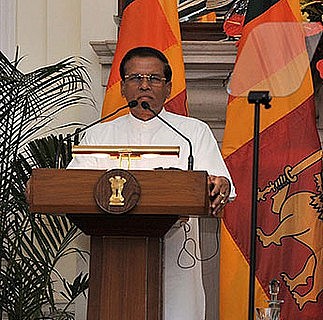
Is the Obama administration too eager to embrace Sri Lanka’s new government?
By Taylor Dibbert-April 30, 2015
By Taylor Dibbert-April 30, 2015
Based on some of the quotes he provided to journalists during his trip, Malinowski is extremely upbeat about how things have been going. To be fair, theop-ed he
placed in a leading Sri Lankan newspaper was still optimistic, though
perhaps less exuberant than some of his public comments.
The Obama administration is undoubtedly delighted that the increasingly authoritarian Mahinda Rajapaksa was thrown out of office in
early January. And, since U.S.-Sri Lanka relations had turned quite
sour under Rajapaksa’s watch, Washington clearly wants things to be
different this time.
Malinowski’s recent statements are in line with what other senior
American officials have said about Sri Lanka’s recent transfer of power.
As Malinowski suggested, it appears that the Obama administration still
has not decided precisely how much the bilateral relationship will
evolve, particularly on controversial issues like human rights and
‘accountability’ for alleged wartime abuses. A degree of patience may be
warranted, although the reform program of newly elected Maithripala Sirisena has not been going that well. On the other hand, parliament’s passage (this week) of the 19th amendment to
the constitution (which trims presidential powers and establishes
various independent commissions) is a significant accomplishment and has
opened the door to even greater optimism regarding a reform program
that had been floundering.
Indeed, it’s likely that the Obama administration will stay upbeat for
at least the next several months and continue to decrease diplomatic
pressure on the new government. Sirisena is expected to dissolve
parliament soon and parliamentary elections could come as early as June.
Once the official electoral campaign begins, Washington would seek to
avoid any perceptions of interference, aside from encouraging the
government to hold peaceful, transparent elections.
Having ended a brutal civil war in 2009, Sri Lanka has come under
intense pressure over the past several years over accountability for
alleged war crimes and ongoing human rights violations post-war.
For better or worse, the Obama administration has taken the lead in
ensuring that Sri Lanka’s human rights and accountability issues stay on
the international community’s radar. Just because there’s been a
changing of the guard does not necessarily mean that should change.
Yet now, with less than two years left in office, would Obama really be interested in keeping the pressure on Sri Lanka?
Secretary of State John Kerry will visit the
island nation this Saturday. Another high-profile visit of this nature
could be viewed principally as an endorsement of Rajapaksa’s electoral
defeat and an embrace of the new government. Let’s keep in mind that the
passage of the 19th amendment (undoubtedly the new government’s most
significant accomplishment to date) was never a foregone conclusion and
that Kerry had confirmed his visit before that had happened.
Aside from the readouts, observers are likely to pay particular
attention to the optics of Kerry’s visit, especially since early
indications suggest that he will not travel to the war-torn Northern
Province.
Malinowski just visited. And now Kerry will be arriving imminently. Is another high-profile visit really warranted at this time?
While one could argue that the legislation does not go far enough,
passing the 19th amendment was a big win for Sirisena and Sri Lanka’s
democracy; this development could augur more positive change in the
coming months. Yet, if backsliding does occur, that may not matter much
to the Obama administration. For now, it looks like regime change in
Colombo means that Washington’s overzealous approach is the new normal
in US-Sri Lanka relations.
Taylor Dibbert is a freelance writer based in Washington, D.C. and the author of Fiesta of Sunset: The Peace Corps, Guatemala and a Search for Truth. Follow him on Twitter @taylordibbert.
Fitting Choice Of M. Sivapalan As UIUC Endowed Professor

By Ciaran Harman -April 30, 2015
I’ve been asked say some words on the topic of “Why Professor Sivapalan?”
I am a former PhD student of Siva, as he is known to his friends. It
might seem unconventional for Siva to ask someone so young and untenured
to give this kind of address. Shouldn’t a more senior colleague be
appropriate? Someone whose own long history of awards and recognition
would impress upon you all Siva’s worthiness for the position of endowed
chair. But to those of us who know him, this choice is quite typical of
Siva.
Now, senior colleagues have given this kind of introduction in the past:
Siva has been well-recognized by his peers for his intellectual
contributions, and for his leadership. He has received the “grand slam”
of hydrology awards: the Dalton Medal from the European Geosciences
Union, the Horton Medal from the American Geophysical Union, and the
International Hydrology Prize from UNESCO. He is one of only three
people to have won all three awards. Perhaps in choosing a former
student this time, he just thought he’d shake things up a little. That
would be quite typical.
*Photo – Dean Cangellaris congratulating Professor Sivapalan
To understand why Siva is so highly regarded, you need to understand a
little history. Hydrology has, in large part, focused on solving
important practical problems, like knowing how much drinking water we
can reliably draw from a dam, or a well.
But for some, hydrologic science is something more.
The transformation of falling rain into a
surging river is, for them, the result of a vast network of
interactions in the landscape: rock and soil, hills and valleys, heat
and light, plants and people. This network is renewed and revised with
each storm, and with each drought. It creates the hydrologic system, and
is sustained by it. Hydrologic scientists have sought to understand
this system deeply. Read More
Vasu, Wimal go to Bribery Commission against CBK over JKH land deal
Parliamentarians Wimal Weerawansa and VasudevaNanayakkara
outside the Bribery Commission in Colombo yesterday before lodging a
complaint against former President Chandrika Bandaranaike Kumaratunga –
Pic by Romesh Danushka Silva
 By Chamodi Gunawardana- May 1, 2015
By Chamodi Gunawardana- May 1, 2015Democratic Left Front (DLF) General Secretary Vasudeva Nanayakkara and National Freedom Front (NFF) Leader Wimal Weerawansa yesterday filed a complaint at the Commission to Investigate Allegations of Bribery or Corruption over a case against former President Chandrika Bandaranaike Kumaratunga which has been lying idle at the commission for years pending investigation.
The complaint against Kumaratunga was initially lodged in 2007 concerning an incident where John Keells Holdings Ltd. was awarded 10 acres of land inside the Colombo Harbour in breach of due process. According to Nanayakkara, the Supreme Court considered the Fundamental Rights petition filed by Nanayakkara against Kumaratunga in 2007 and ordered the Bribery Commission, Criminal Investigation Department (CID) and the Attorney General to investigate the incident further.
However, addressing the media yesterday outside the Bribery Commission, Nanayakkara claimed that the Bribery Commission and the CID had failed to investigate the issue for seven years or to take any steps regarding this matter.
“My lawyers sent several letters to the Bribery Commission inquiring about the imminent investigations yet they didn’t receive any response from the commission. Therefore we came to the Bribery Commission today to remind the authorities about the pending investigation which was ordered by the Supreme Court that the Bribery Commission has failed to conduct even though seven long years have passed since the order was given. Nevertheless, we are still waiting for justice,” Nanayakkara said.
Meanwhile, Weerawansa, who also accompanied Nanayakkara to the commission, said that the Government should give the same amount of attention to this particular case too that it was presently giving to other criminal investigations.
“We are challenging the Government to carry out investigations regarding this case. However, we will wait and watch whether this Government has the ability to carry out this investigation or not,” Weerawansa stated.
Former Defence Secretary is a dual citizen
Rasika Jayakody-Thursday, April 30, 2015
 The
19th Amendment to the Constitution, which was passed in Parliament on
Tuesday with an overwhelming majority, has barred former Defence
Secretary Gotabhaya Rajapaksa from contesting Parliamentary elections.
The
19th Amendment to the Constitution, which was passed in Parliament on
Tuesday with an overwhelming majority, has barred former Defence
Secretary Gotabhaya Rajapaksa from contesting Parliamentary elections.
The section of the 19th Amendment disqualifying dual citizens from
becoming Parliamentarians remained unchanged during the Committee Stages
of the debate.
When contacted by the Daily News, Immigration and Emigration Department
of Sri Lanka yesterday confirmed that the former Defence Secretary is a
dual citizen.
Therefore, the 19th Amendment disqualifies him from contesting the
forthcoming Parliamentary election as a candidate of any registered
party or independent group.
Rajapaksa spent over 10 years in the US after he retired from the Sri Lankan Army of which he was a Lieutenant Colonel.
He returned to Sri Lanka in 2005 to assume duties as the Secretary of
Defence after his brother, Mahinda Rajapaksa became the President.
It was in the grapevine among political circles over the past few days
that several extremist Sinhala-Buddhist political organizations were
planning to field former Defence Secretary Gotabhaya Rajapaksa as a
candidate at the next election. In an interview with a website recently,
Rajapaksa himself said that he might enter politics in the near future.
Legal experts state that the former Defence Secretary should do away
with his American citizenship if he intends to contest the next
election. However, former Economic Development Minister Basil Rajapaksa
has no legal barrier to contest the Parliamentary election as he is not a
dual citizen. Sources close to the former Minister told the Daily News
that he was only a green card holder.
A constitutional expert Jayampathy Wickramaratne told the Daily News
yesterday that Basil Rajapaksa has no constitutional barrier to contest
the election if he is a green card holder.
Basil Rajapaksa has already been prosecuted by the Police Financial
Crimes Investigations Division in connection with misappropriation of
'Divineguma' funds.
Brutal Periods In Sri Lanka & The Idea Of ‘Responsible Action’

By Harini Amarasuriya -April 30, 2015
Thank you very much for inviting me to speak a few words on the bookPalmyra Fallen – From Rajani to War’s End by Dr Rajan Hoole.
What I thought I would do today is to share a few thoughts about
certain themes that I found particularly relevant, interesting and
provocative. First let me say that I was in absolute awe of the wide
range of ideas touched in this book – ranging from Apartheid South
Africa, to conflict-ridden Ireland and Nazi Germany; the poetry of T.S
Eliot, Emily Dickinson and Walt Whitman; the Holy Bible, the Mahavamsa,
the Mahabaratha, theories of Karl Popper and mathematical formulas. This
book is as interesting for what it reveals about the author’s eclectic
and varied interests and sources of inspiration as for the actual
substance of the book itself and the often tragic events it documents. I
certainly can’t do justice to this huge breadth of ideas, thoughts and
events expressed in the book. What I am going to focus on in the time
that I have today are the questions and ideas that the book provoked in
me as I read it. These questions and ideas are not regarding specific
events, ideas or the people discussed in the book – but at a broader
level what it says about society, politics and civil action.
I was an empty-headed, rather sheltered school girl at the time of Rajini Thiranagama’s
assassination. Like for most of my peers in the South, the event did
not have a particular significance at the time. It was later, that I
began to be curious about Rajini’s life – what kind of person was she?
How did she do what she did? In the course of my work I met people who
knew her well: Saratha one of the first people to get to Rajini as she
lay dying on the street; Rajini’s younger sister Sumathy; her daughter
Sharika and I just missed each other at the University of Edinburgh –
she was leaving Edinburgh as I started my doctoral studies there. I had
heard of Rajani’s colleagues Prof Daya Somasunderam, Dr Sritharan and Dr
Hoole and her husband Dayapala Thiranagama from
my own friends and colleagues who knew them or who had worked with
them. All of these encounters made me more curious about Rajini; what
was she really like? How do we or can we separate the real Rajini from
the legend? What made a 35-year old woman take the risks she did for
what she believed in?
This was not just idle or ghoulish
curiosity; I became interested in the 1980s, particularly the times when
the state was at war with the LTTE in
the North and East and with the JVP in the South. It was one of the
most violent and brutal periods in Sri Lanka. What also fascinated me
about that period was how during this period, individuals like Rajini
and others; groups like UTHR and
others in the North as well as in the South, got together and at great
personal risks stood up against violence, against brutality and
repressions, against nationalisms. They provided an alternative voice –
an alternative ideological and political space. Many like Rajini paid
for their work and their beliefs with their lives. How did they do it?
Were they simply individuals with great personal courage and strong
convictions or was there something else?Read More
Subscribe to:
Posts (Atom)




